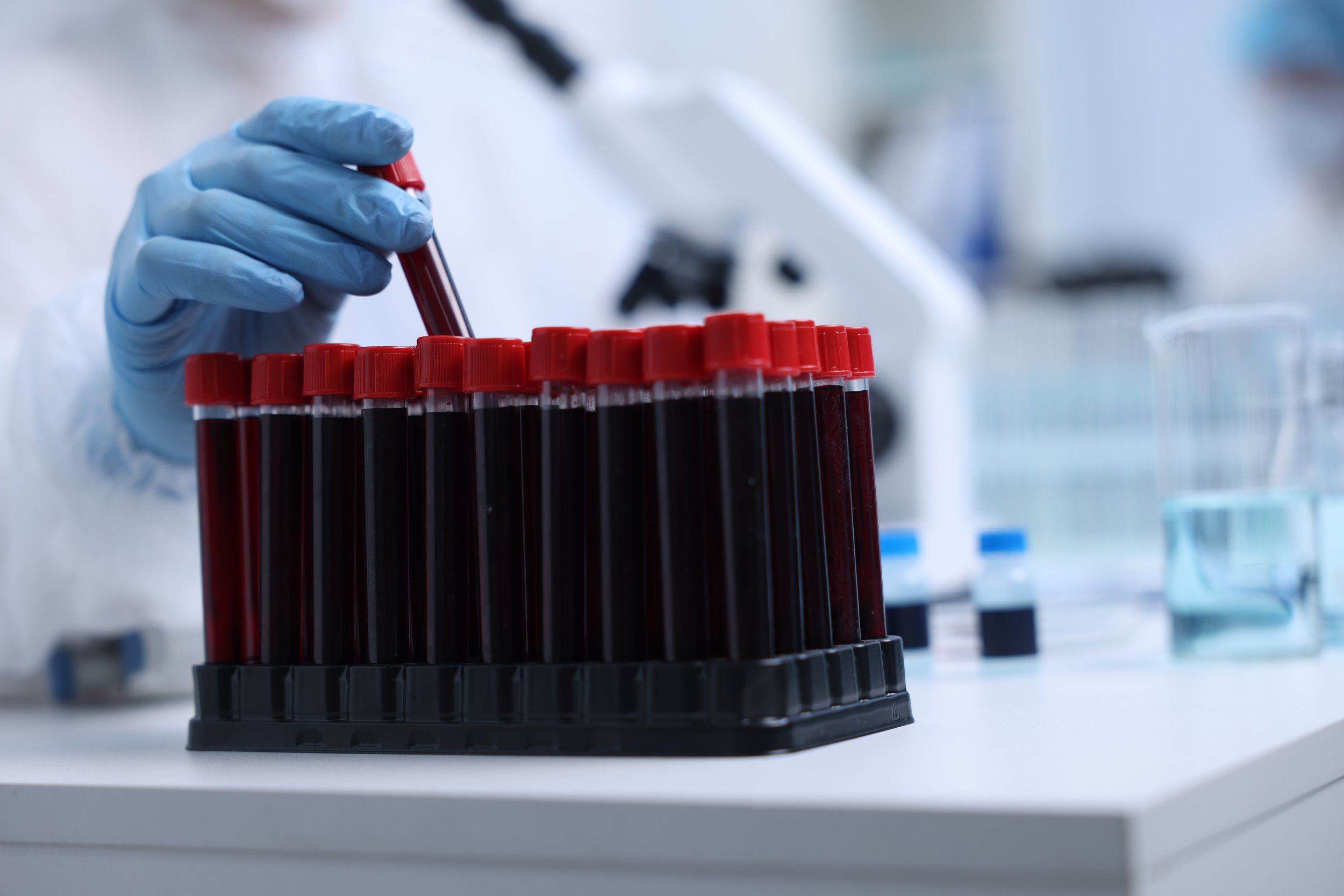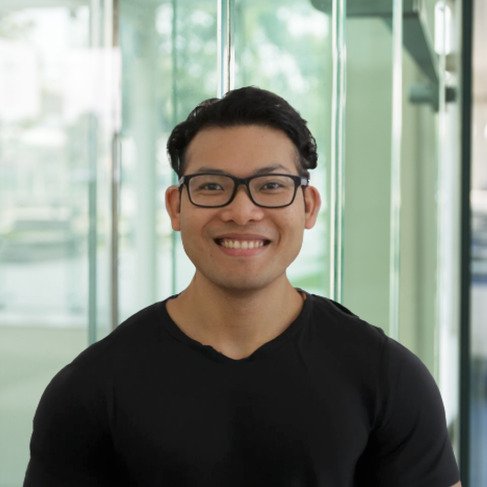
About
RobotDreams® GmbH is shaping the future of diagnostics with AI-supported software for analyzing blood samples and detecting physiological conditions in vitro and in vivo.
VISION
In a world where precise diagnostics are crucial to healthcare, our company strives to revolutionize medical diagnostics. Our AI-powered software leverages cutting-edge technologies and advanced deep learning methods to extract comprehensive, rapid, and accurate health information from every drop of blood. Our goal is to enhance well-being and quality of life worldwide through early detection and more precise diagnoses.
MISSION
Our goal is to place life-saving diagnostic accuracy powered by AI into the hands of medical professionals worldwide and to revolutionize healthcare with precise, accessible, and cost-effective solutions.
Product
With THOLAN LAB, we transform hematological data into powerful AI models. Our software is implemented as a modular platform and continuously expanded with new modules. Each module is specialized in the precise execution of specific diagnostic procedures.
First Module
Acute Coronary Syndrome
Approximately 9.8 million people visit emergency rooms in the EU every year [1]. The assessment of patients admitted with acute chest pain is time-consuming and expensive, while a significant proportion of these patients do not actually suffer from acute coronary syndrome (ACS). Risk stratification usually takes place in the emergency department, and its primary goal is to identify or rule out life-threatening conditions such as heart attack. The traditional approach to assessing patients with suspected ACS is based on three criteria: Assessment of clinical symptoms, electrocardiographic findings in the recording ECG and measurement of cardiac troponin.
If the ECG is inconclusive, risk assessment and decision-making can be difficult in traditional work-up programs and the determination of cardiac troponin levels is highly time-dependent. As a result, up to 13.5% of patients having unspecified chest pain are hospitalized unnecessarily and up to 2% of ACS are missed [2], which is associated with a twofold increase in 30-day morbidity and mortality [3].
Team
ULRICH Weigelt
Ulrich is the Co-Founder and CEO of RobotDreams®. He is responsible for managing the company and driving its global growth. Ulrich brings over 30 years of management and leadership experience in the eLearning and performance support software market. Most recently, he served as Senior Vice President at "PRE-A Process Robotics Easy Automation GmbH" in Berlin, where he was responsible for global business development. Ulrich has played a key role in the success stories of various startups.
DIMITRIJ Shulkin, MSC
Dima is the Co-Founder and CTO of RobotDreams®. He holds a Master's degree in Computational Engineering from HAW Hamburg. For over 10 years, Dima has been developing AI-based solutions for the aerospace, automotive, and IT industries, working with global players such as Airbus, Schaeffler, and Fujitsu. His AI projects have earned him numerous accolades, including the Aviation Newcomer Award, the Franz Herbert Spitz Award, and the Fujitsu Distinguished Engineer Award.
ALexander schwarzfurtner
Alexander is the COO of RobotDreams®. After 20 years in the semiconductor industry, Alexander successfully sold his company shares in 2022. In 2008, he founded his first company, building one startup into a global player within 10 years. During this time, he was responsible for the development and production site until the company's sale. His strengths lie in his strong entrepreneurial mindset, passion for leadership, and expertise in establishing essential structures within a growing organization.
PROF. DR. RER. NAT. Aleksandr Pushkin, MD
Prof. Dr. rer. nat. Aleksandr Pushkin is the founding father of the idea and co-inventor of the method behind RobotDreams®. Aleksandr heads the laboratory at the Multidisciplinary Hospital in St. Petersburg. In 2020, he was awarded the academic title of Associate Professor in the field of "Clinical Laboratory Diagnostics" at the St. Petersburg State Medical University, where he teaches clinical laboratory diagnostics alongside a course in molecular medicine.
Dr. joseph doolittle
Dr. Joseph Doolittle is the Mathematician at RobotDreams®. Originally from the U.S. state of Virginia, Joseph studied mathematics at the University of California, San Diego, and earned his PhD in Mathematics from the University of Kansas in 2019. His dissertation focused on the combinatorics, geometry, and topology of polyhedral complexes. In recent years, Dr. Doolittle has worked as a research associate at both FU Berlin and TU Graz. His research specializes in high-dimensional problems and the structures that emerge in their analysis. He has co-authored several peer-reviewed articles published in renowned journals such as Mathematika and Discrete and Computational Geometry.
MARVIE DEMIT
Marvie is the CPO at RobotDreams®. With a total of 12 years of experience in Life Sciences, Medical, and In Vitro Diagnostic Technologies, he has gained expertise in both academic and non-academic environments. His career began with a Master’s degree in Bioinformatics, leading to a position as a Data Scientist at mySugr GmbH, where he developed fundamental skills in data processing and machine learning. As a Product Development Manager at an AI-driven bioinformatics company, he led the engineering and design teams, which led to his promotion to Head of Operations at Platomics GmbH, where he oversaw multiple departments.
Michal Pallo
Michal is our Head of Head of QARA (Quality Assurance and Regulatory Affairs) Michal is an experienced QARA proffesional with expertise in EU MDR, IVDR, and ISO 13485 compliance. Michal has led several ISO 13485 QMS implementations and managed EU MDR re-certifications for Class IIa-III medical devices as well as IVD. With a background in pharmaceutical sciences and medical biotechnology, he regulatory knowledge with a strong scientific foundation. His experience spans technical documentation development, clinical evidence development, risk management, and quality management system development as a consultant across various medical device companies.
Maryam Haghdoust
Maryam Haghdoust is a Junior Data Scientist at RobotDreams®. With a background in Computer Engineering, she is currently pursuing a Master’s degree in Artificial Intelligence and Cybersecurity at the University of Klagenfurt. Previously, she worked as a Junior Data Scientist at IranKish Credit Card Co., focusing on merchant segmentation and developing a neural network-based prototype for fraud detection. During her internship at Huawei Technologies, she contributed to improving operational efficiency through database automation and network monitoring. Maryam is proficient in Python, TensorFlow, and PyTorch, with experience in neural networks, time series forecasting, and natural language processing.
Philipp Robin
Philipp Robin is the Working Student at RobotDreams®. Since 2023, Philipp has been studying Human Medicine at the Medical University of Graz in cooperation with JKU Linz. Prior to this, he studied Medicine for one year at the University of Pécs in Hungary. Originally from Germany, Philipp completed a dual study program with the Mercedes-Benz Group AG (formerly Daimler AG) at DHBW Stuttgart, earning a Bachelor’s degree in International Business in 2022.
Martin Jauregui Ortun
Martin is a Software Developer at RobotDreams®. Originally from northern Spain, he brings an interdisciplinary background to the team. After completing a degree in Biology at the University of Salamanca, he worked in medical diagnostics and quality control before transitioning into software development. In recent years, Martin has gained extensive experience as a Full Stack Developer at companies such as Metaloop and Veltis Rating. His responsibilities included developing and optimizing data-driven web applications, building robust backend architectures, and integrating modern UI components. His technical focus lies in JavaScript, React.js, Node.js, PostgreSQL, and MongoDB.
Advisory Board
Prof. Andreas Zirlik, MD
Prof. Andreas Zirlik, MD, is the Professor of Internal Medicine and Cardiology at the Medical University of Graz and Head of the Clinical Division of Cardiology at the University Heart Center Graz. He completed a postdoctoral period funded by the German Research Foundation (DFG) at Brigham's Women's Hospital of Harvard Medical School in Boston, USA. Subsequently, after his return to Freiburg, he founded the research group Atherogenesis Freiburg. Prof. Zirlik is acting president of the German Society for Atherosclerosis Research, chairman of the Working Group Heart and Diabetes of the German Society of Cardiology and ex officio member of the board of the Austrian Society of Cardiology.
Dr. christian pfandl
Dr. Christian Pfandl can look back on over two decades as a lawyer. He graduated from the Karl-Franzens University in Graz in 1996 with a doctorate in law. With his law firm Aschmann & Pfandl, Dr. Christian Pfandl has made a name for himself beyond Graz. He specializes in corporate law, company law and M&A. In addition to his main activity in the law firm, Pfandl is also active as a member of the supervisory board and board of trustees. He also gives lectures on insolvency and intellectual property law.
ASSOZ. Prof. Heiko Bugger, MD
Prof. Heiko Bugger, MD, is a senior physician in the Clinical Department of Cardiology and Professor of Cardiovascular Immunology at the Medical University of Graz. Prof. Bugger received his scientific training, among others, at the Yale School of Medicine and during a multi-year postdoctoral fellowship at the University of Utah School of Medicine. From 2009 to 2018, he worked in the Department of Cardiology and Angiology at the University Heart Centre Freiburg-Bad Krozingen, where he habilitated and worked as a senior physician until his last position, before moving to the Medical University of Graz. Prof. Bugger has published numerous scientific papers and has received several awards for his work. He is a reviewer for renowned journals and funding organisations such as the European Research Council and the German Research Foundation.
Contact
Are you an investor or a business angel interested in AI in medicine?
Are you a lab and would like to test our AI solutions free of charge or cooperate?
Contact us via our web form.


























